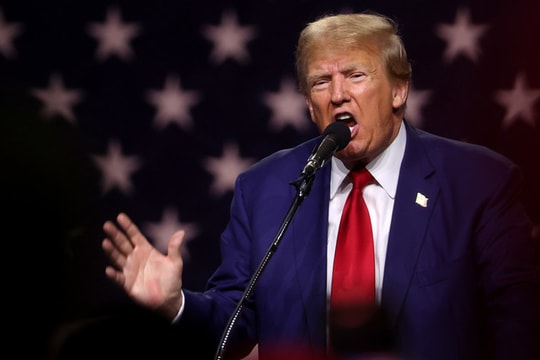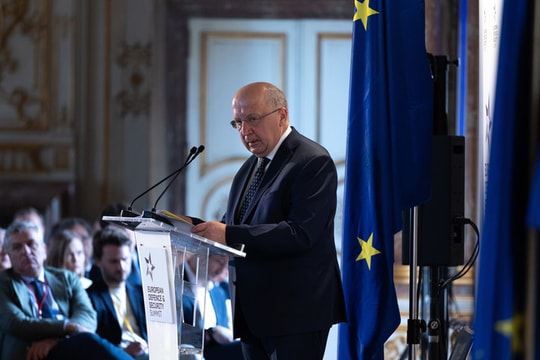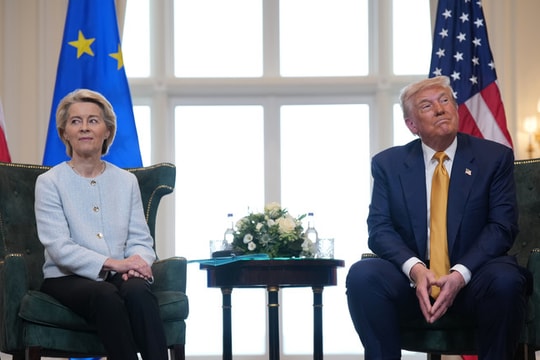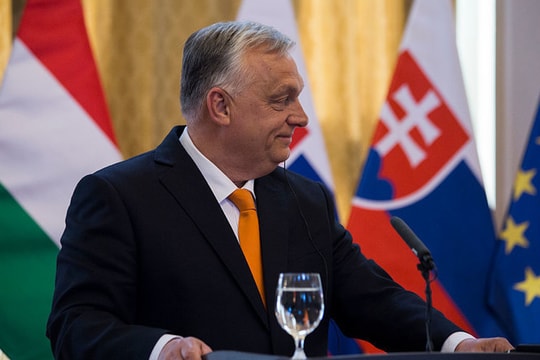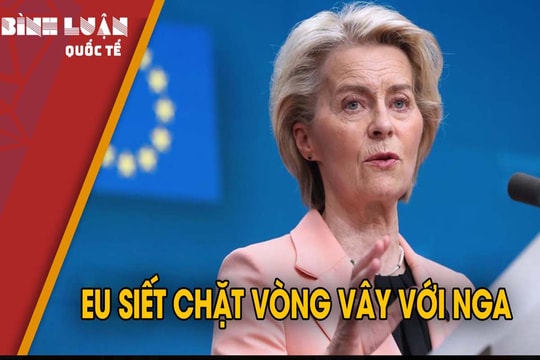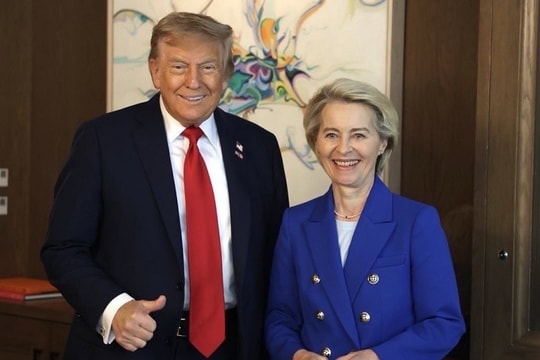Voter attraction tactics of future Austrian chancellor
Creative in personal branding and quick to grasp voters' desires, Sebastian Kurz suddenly became a political star.
 |
Sebastian Kurz addresses supporters in Vienna, Austria, on October 15 amid a sea of turquoise banners. Photo: AFP. |
Three days before Austria’s general election, hundreds of People’s Party members and volunteers gathered at the party’s offices in Vienna to watch the final round of televised debates. Against the dark wood-paneled walls and a sea of black suits, banners were bright turquoise – the new color of the center-right party chosen by its 31-year-old leader, Sebastian Kurz.
Since becoming chairman of the People's Party, Sebastian Kurz has immediately begun rebuilding the "brand identity" for Austria's oldest and most decrepit political party. According to the Atlantic, Kurz has tried to build an image of a "fresh" and "different" People's Party in the hearts of voters with slogans such as "It's time. Now or Never!".
“He has successfully redesigned the ‘packaging’ of one of the continent’s most traditional and boring parties,” said Stefan Lehne, a visiting scholar at Carnegie Europe.
Often appearing in public with his chestnut hair slicked back, elegant in a dark suit, no tie and open shirt collar, Kurz emerges as a dynamic and bold leader of change.
“When you see election posters on the street, you don’t immediately recognize them as the same party,” said Jakob-Moritz Eberl, a researcher at the University of Vienna. “They are all centered around the personal image of Sebastian Kurz.”
In just five months, the New People's Party has attracted 200,000 more voters and raised its support rate from below 20% last year to more than 30% this year.
Following the People's Party's victory in the general election, German Chancellor Angela Merkel congratulated Austria's future chancellor and praised the young politician's campaign as "modern".
However, Kurz's path to becoming Europe's youngest leader was not simply about building an external image, but his voter attraction strategy was mainly based on the decision to pull the People's Party, which is a centrist right-wing school, to lean far right with a hard-line nationalist viewpoint.
'Times create heroes'
 |
Election posters depicting Sebastian Kurz on a street in Vienna, Austria. Photo: AFP. |
Kurz had been harboring political ambitions since he was 16. At that time, the teenager, still in school, called the district office of the People's Party in his hometown and frankly offered to work for the party.
“It didn’t go well,” Kurz recalls. “They looked at me as if to say come back here in a few years. That experience convinced me that politics should be a field that anyone who wants to participate in can participate.”
When rejected because of his age, the young man immediately retorted: "As time passes, it will no longer be a problem."
His perseverance and ambition led Kurz to become the leader of the People's Party's youth wing in 2009. Two years later, the young politician was promoted to an important position in the Ministry of the Interior. At the age of 27, Sebastian Kurz became the youngest foreign minister in Europe.
"Over the past 10-15 years, this man has put everything aside to focus on his political career," said Hannes Hofbauer, an observer of Austrian politics.
The necessary conditions including talent, hard work and ambition combined with the sufficient condition of economic stagnation and the wave of immigrants pouring into Europe have brought the 31-year-old politician to the leadership position of Austria.
Austria, one of Europe's wealthiest countries with a population of 8.7 million, has become one of the gateways for refugees from Syria and other Middle Eastern countries pouring into Europe during the migration crisis over the past two years. The Austrian government has taken in around 100,000 refugees, or nearly 1% of its population, one of the highest compared to other European countries.
Faced with the fear of many Austrians that the wave of immigration would "drain" the state budget, Kurz has reassured voters with a series of tough statements on the immigration issue.
"That is why I propose that immigrants who have never contributed anything to our social system should receive only limited benefits," Kurz said in a televised debate. "And that financial support for immigrants in the future should be suspended."
"If asked what I would do, I would say that there must be discussions to create the change that Austria really needs. First of all, we must cut taxes for workers, build a stronger social security system and fight illegal immigration that endangers the order and security of our country," the politician said in an interview.
Over the past five years, the Austrian government has struggled to address high unemployment amid a sluggish economy. According to a study by the SORA institute, more Austrians feel their voices are not being heard than they did 10 years ago and are hungry for new leadership to bring about change. Survey results show that more than 40% of voters agree that Austria needs a strong and decisive leader.
"People are worried about the future and that decided the outcome of this year's election," said Christoph Hofinger, director of the SORA institute.
Voter Ursula Zoehrer, 47, raised her glass at the People's Party's victory party. She was optimistic about the country's future under Sebastian Kurz, who has pledged to "put Austria back on top".
"The political situation in Austria is quite deadlocked... If something bad happens, they blame the European Union. I think Kurz's enthusiasm will break this old habit," Zoehrer said.
According to VNE
| RELATED NEWS |
|---|

